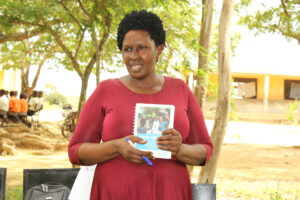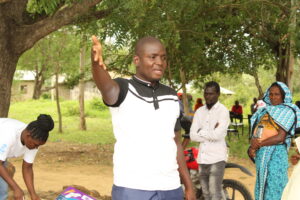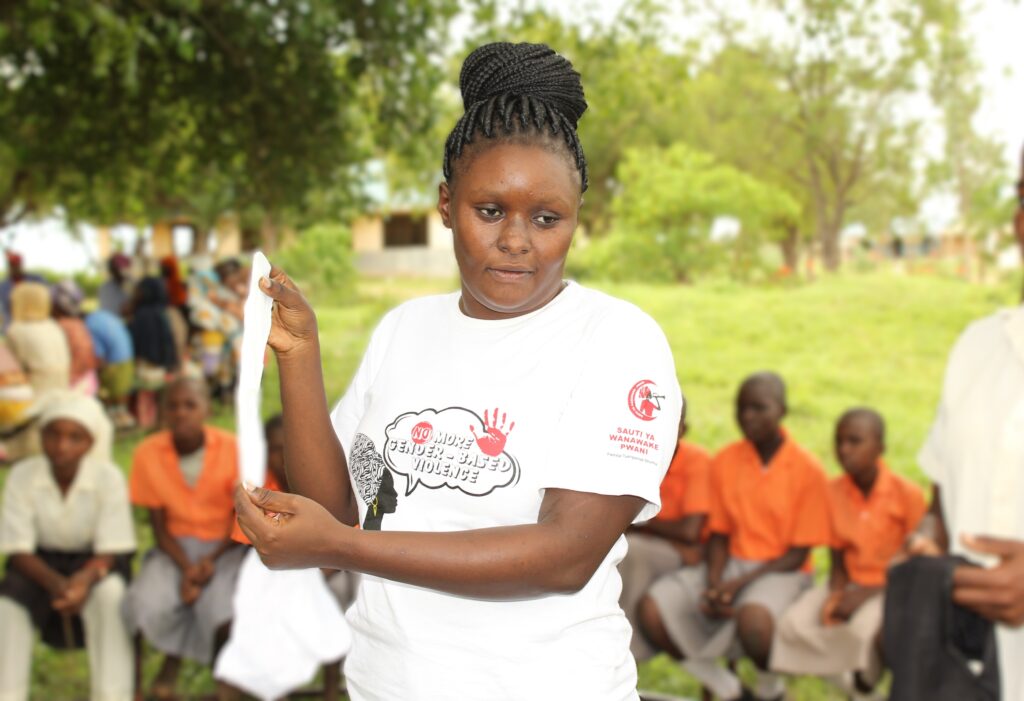BY SHABAN OMAR
Youth for a Sustainable World (YSW), formerly known as the German Foundation for World Population (DSW), in collaboration with the County government department of health, has intensified menstrual hygiene management awareness campaigns in grassroots areas of Lunga-Lunga and Msambweni sub-counties in Kwale County.
The new development comes against the backdrop of the 2025 Menstrual Hygiene Day campaign, themed “Empowering individuals, promoting health, and advocating for sustainable menstrual practices globally.”
YSW, through its Connect A Girl Project, organized community dialogues and peer learning sessions to raise awareness about menstrual hygiene management.
Additionally, YSW supported Lunga-Lunga Youth CBO to conduct an MHM campaign and distributed sanitary towels at Mteza Primary School. total of 138 students were reached, comprising 80 girls and 58 boys.
The initiative focused on protecting and empowering women and girls, especially against sexual exploitation and violence.
The sessions provided an opportunity for young people as well as parents to discuss menstruation openly, demystifying cultural practices as well as acquiring knowledge and the right information on MHM.
YSW project officer Tatu Mjaka said the menstrual hygiene management seeks to break cultural taboos and harmful beliefs surrounding menstruation while encouraging greater male involvement in promoting quality menstrual hygiene practices among girls and women.

The MHM awareness campaigns included community dialogues and peer learning sessions to provide the participants, especially women and girls, accessible information to manage their menstruation safely and with dignity.
Mjaka said the campaign is a vital platform for promoting gender equality and health education, as many menstruating women and girls face discrimination and exclusion in society during their periods, which deny them opportunities to meaningfully engage in community development and fully enjoy their rights.
She said the awareness plays a vital role in the growth and development of the girl child, as it sensitizes and persuades parents to support their daughters’ menstrual and reproductive health.
Mjaka further said that the campaign seeks to normalize menstruation as a natural biological process and eliminate shame and stigma associated with it while also empowering women and girls to have control of their reproductive health.
She added that the campaign aims to encourage parents to invest in MHM individually and collectively through public participation in order to influence adolescent sexual reproductive health policies as well as resource allocations. This measure can further help prevent SGBV, including teenage pregnancies and child marriages, among others.
According to the 2022 KDHS report, Mwereni Ward has high rates of teen pregnancies.
Mjaka further said that the MHM programs adopts a multi-sectoral approach, with YSW partnering with various stakeholders to help adolescent girls and women manage menstruation with dignity and confidence.
YSW field officer Asha Ibrahim emphasized the importance of encouraging girls and women to adopt proper hygiene practices and to approach menstruation with confidence and comfort.
“There are many myths and a lot of shyness surrounding menstrual cycles. We want girls to embrace this natural biological process with pride, not shame,” she said.
She added that such efforts help girls stay in school and engage fully in daily life without fear or discomfort.
Ibrahim said educating both boys and girls is key to building a supportive environment since they become allies rather than mockers.

Mwereni Ward Public Health Officer and Lunga-Lunga Sub-county Community Adolescent and Young People (AYP) coordinator Samson Chiboya said the menstrual hygiene management program also includes aspects of nutrition.
Chiboya said that consuming iron-rich foods is crucial during menstrual periods, as it helps boost blood levels and prevent anemia.
“We encourage girls to eat foods like liver, green leafy vegetables, and legumes to replenish lost iron during menstruation,” he said.
He further stated that the program also focuses on raising awareness about infections such as urinary tract infections (UTIs), which are often linked to poor menstrual and personal hygiene, among other things.
“Proper hygiene practices are critical in preventing infections. We are educating both girls and women on how to maintain cleanliness during their menstrual period to avoid health issues,” added Chiboya.
A parent, Kombo Dindia, praised the menstrual hygiene management (MHM) sessions, describing them as highly educational.
He said the program had helped them understand the importance of supporting girls and women during their menstrual cycles.
Dindia added that he drew a lot of lessons, including providing pads and discussing openly about MHM between men and women.
He pledged continued support, saying community involvement is key to promoting proper menstrual hygiene and breaking the stigma surrounding the topic.


